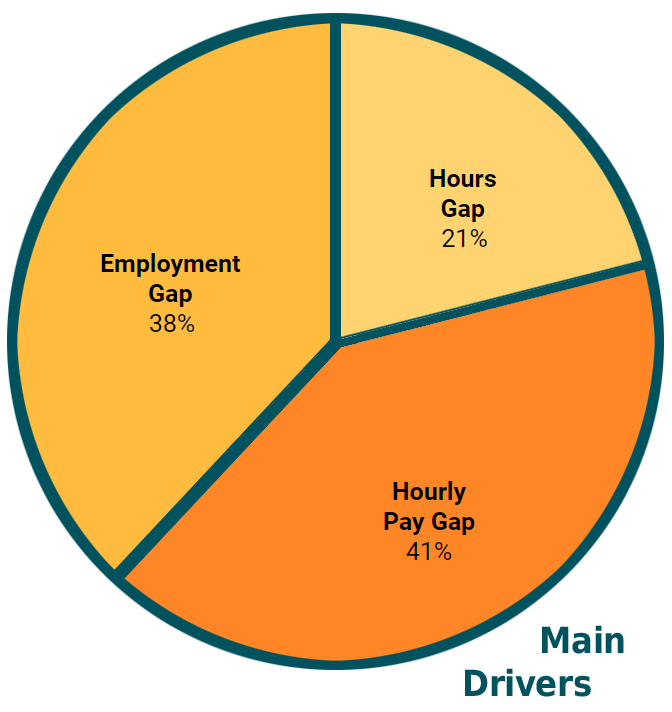... loading ... Map Data
It took us a global pandemic to realise that we all depend on care. With the EU population ageing and the rising need for childcare support, our interdependent caring relations have become more obvious than ever.
Despite its vital contribution to the well-being of any society, care work remains highly undervalued. Due to persisting patriarchal norms, women still bear the disproportionate burden of care work, whether paid or unpaid. The consequence of such norms results in their overrepresentation in poorly paid care sectors and in them working “double shifts” taking over the unpaid care work at home after their daytime job. The care crisis, deeply rooted in gender inequalities, therefore constitutes one of the main challenges for the rebuilding of Europe's post-pandemic future.
To aim for a strong and care-focused Europe, the upcoming EU Care Strategy announced by the European Commission must contribute to closing the overall gender earnings gaps, currently amounting to an EU average of 36.7% (Eurostat). This gap corresponds to the difference between what men and women earn annually and is mainly attributed to care responsibilities.
This figure contrasts with the more widely known figure of the EU gender pay gap (13%, Eurostat) because the latter is only one of the main contributors of the overall gender earnings gaps. To live up to the promises of a true care revolution offering fair and adequate solutions to each of the underlying factors, not only must the EU Care strategy narrow the gender pay gaps but also the gender employment gaps and the gender working time (or hours) gaps. The significant variations between EU countries within these indicators must also be considered.
